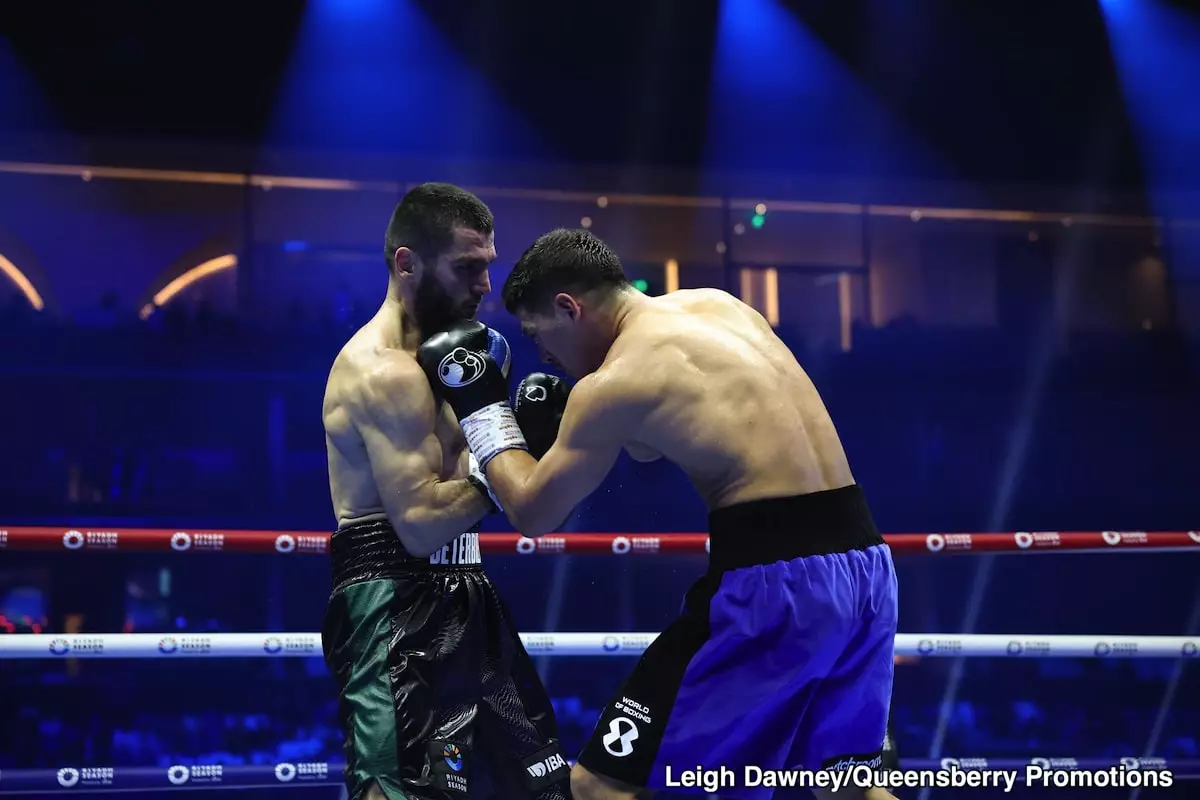When Artur Beterbiev faced Dmitry Bivol in a much-anticipated light heavyweight championship bout, the boxing world was rife with excitement and analysis. Following the bout, Tim Bradley, a seasoned commentator and former champion, made headlines by defending the judges’ decision which awarded Beterbiev a majority decision victory. This article will delve into the nuances of the fight, the aftermath of the decision, and the broader implications for both fighters and the sport.
The bout showcased a clash of fighting styles. Bivol’s strategy heavily focused on evasion. He moved agilely around the ring, exhibiting a commendable ability to avoid Beterbiev’s powerful punches. However, this defensive approach came at a cost; it appeared to compromise his offensive output significantly. While Bivol demonstrated impressive footwork and defensive skill for most of the match, it was evident that he was overly preoccupied with not getting hit. This defensive strategy, while effective initially, became detrimental as the fight progressed, especially in the latter rounds when aggression tends to make a greater impact on judges’ scores.
Beterbiev, on the other hand, was the embodiment of the adage that “to win a fight, you need to throw punches.” His consistent pursuit and striking power, seen in his heavy shots that visibly affected Bivol, contributed to his victory. The fight statistics reflected a narrow margin in landed punches, but the event’s qualitative aspects—such as the intensity and effectiveness of the punches delivered—were pivotal. Beterbiev’s shots, even if not always landing flush, caused visible damage, resulting in bruises and markings on Bivol’s face. Judging by the impact of the strikes, it becomes clear why the judges leaned toward Beterbiev’s performance.
The Judge’s Perspective and Public Reaction
Bradley’s assertion that the judges’ decision was justified sends a strong message about the importance of understanding a fighter’s effectiveness rather than merely counting landed blows. While some fans criticized the outcome as a “robbery,” it’s critical to recognize that judging in boxing is often subjective and complex. Factors such as aggression, effective aggression, and damage caused are heavily weighted in scoring, and those criteria favored Beterbiev on the night of the fight.
Prominent figures in boxing expressed their sentiments strongly. Some promoters even voiced outrage, claiming that one judge’s score, which was 116-112 in favor of Beterbiev, warranted inquisition and criticism. Such passionate responses highlight the emotional investment many have in the sport and the subjective nature of judging in combat sports. However, labeling the fight as a “highway robbery” overlooks the intricacies of the scoring criteria, which include not just the number of punches thrown but their effectiveness.
A notable aspect of Bivol’s strategy was his underutilization of offensive opportunities during critical moments in the fight. As Bradley pointed out and others echoed, the latter rounds, especially the 11th, saw Bivol taking a passive approach. This was starkly contrasted with Beterbiev’s growing intensity and assertiveness. Bivol’s failure to adapt his strategy in the second half of the fight arguably cost him the bout. Engaging in exchanges and throwing more punches could have swayed the judges, particularly in a match that was closely contested.
In professional boxing, it is essential to seize opportunities when presented. The reluctance to engage can lead to a perception of dominance by the opponent, as was the case with Beterbiev. As a result, Bivol’s tactical focus on defense overlooked the quintessential principle of boxing: the necessity of offense.
Implications for the Future of Both Fighters
The outcome of this bout carries significant implications for both fighters. For Beterbiev, the victory cements his status as one of the top light heavyweight champions and ensures he remains a formidable presence in the division. Meanwhile, for Bivol, rebounding from this loss will require introspection and adjustments in his fighting strategy. Moving forward, he must balance defensive tactics with offense to remain competitive against elite opponents.
While the decision in the Beterbiev vs. Bivol fight sparked controversy, a thorough analysis reveals that the judges’ verdict aligns with the principles of effective boxing. Understanding the factors that influence scoring is paramount for fans, promoters, and fighters alike as they navigate the complex landscape of professional boxing.

